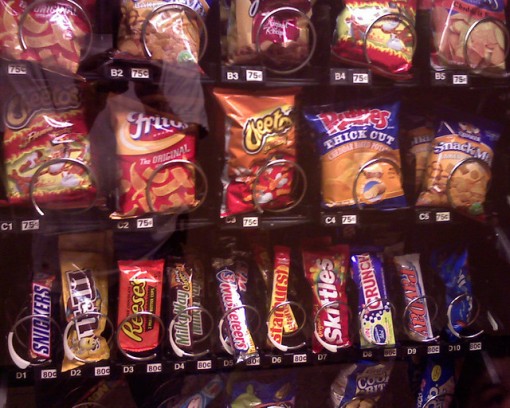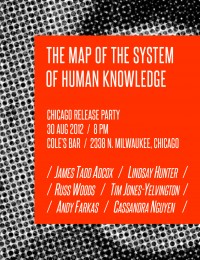Alan Rossi
The dog, we’d seen it behind our house for months. They kept it tied on a chain, a pit, what else. The pit had a dog house, a circle of dirt the radius of its freedom. They came out and fed it sometimes; they came out and beat it others. Their house had boards on the windows, a screen door that hung open and crashed in the wind, a gaggle of children who never seemed to be in school. Why should they be? I said. Oh, I was cruel, in those days, and after your brother got in a car accident, you wanted me to save the dog? He was gone in a coma and we had to stop holding our breaths and so to let yours go you snuck out at night to feed the dog, breathing in the cold. You were always the one. Through the back window, I watched you all small in the neighbor’s backyard, beneath pin oaks, snooping, playing with the dog. Were the neighbor’s watching you? Pulling up a board in their own window?
Your mother called and discussed your wanting this dog. We could see what you were doing, the replacement you were making. You didn’t want the dog, you explained. You only wanted the dog free.
Ha, I said. Just like your brother.
Just rescue it, you said. Do it for me.
You were still beautiful then, I was still young. That evened us out. I’m not going anywhere near that dog, I told you. Have you seen those people? You had, so you only shook your head, your pretty hair.
We lived near train tracks. Our house shook, pictures broke, but our bed also hummed. It was almost the good, good time. Except for that dog.
He won’t save it, you told your mother.
Tell Robert to get better, you told your mother.
I wish I could be there, you told your mother.
It was so close to the good, good time. Then it was gone. Your brother was hurt and wasn’t waking. How could I be so selfish you always wanted to know. I still don’t know how. You were afraid to see your brother. We both knew why.
We thought the neighbors who owned the dog were loading their Cutlass Sierra with drugs. We watched out the window. We watched so many people out windows. It was the shame of our lives you said. We only wanted to know how others lived. Our neighbors opened the trunk of their Cutlass Sierra and loaded it up with duffel bags, watching up and down the street, hesitant. The bags looked so heavy, they took two men to lift. The men hung about beneath the trees in the backyard, and the trees hung under the weight of a winter sky, so much grey. The men pounded each other on the back, they laughed like warriors, they strained their bodies.
Do you think it’s drugs? I said.
It’s too heavy for drugs, you said. That would be the heaviest coke in the world.
Maybe it’s really heavy coke, I said. You’re not a coke runner.
How do you know? you said. I might very well have run coke. You don’t know me that well.
It was true, I didn’t, so I shut myself away and watched out the windows our neighbors loading their car, afternoon after afternoon. It was later determined the bags were filled with stolen scrap metal – stakes and rail – from the railroad yard. Crafty, I thought, watching them load. The pit watched them, too, skitting around on her chain, afraid. I felt a little like that dog, hemmed in in my life. How I wanted out. How I wanted to bring you along, and get gone, gone, gone, away from such people and their ways.
I couldn’t see any way to get the dog, but you kept wanting me to get it. In the evenings, sun cut through blinds onto the wall, grey-streaked and light yellow, unbearably beautiful. We turned our faces to that wall and closed our eyes; we thought of your brother. We had no money to visit him, you said often.
Make me feel better about saying that too often, you said.
He isn’t there anyway, I told you. Not really.
Please stop talking, you said.
We were jobless for a month then found work at a restaurant, a breakfast place. I hadn’t seen a sunrise in years. I lost myself some one morning getting coffee ready. The waking early did it, thinking of your brother and my coldness in the morning among so many people who looked so well put together, suits, grey fabric, starched cotton, pale faces.
Fucking waking early, I said.
It’s best to know the day early because it reveals your real self to you, you said.
I don’t know what that means, I said.
It’s why you cried, you said.
At home, we learned the sound of the loading of the trains, of our neighbor’s loading their car, of the dog’s soft whimpering barks. Out our bedroom window, trees were slathered in ice, a quick ticking upon glass. We hardly slept. There was too much noise and it was always time to wake, to work. Work pleased you. It pushed thoughts of your brother away.
Let’s get that dog, you said one day. I have someone who will take her.
What’s her name? I said.
I call her Mitz, with a z. For her paws, you said.
No, no, I said. Who will take the dog?
Sharon. I promise we won’t keep her. It won’t be our dog, I just want her to be safe. You save it. You save everything.
It was true, I did save everything: a cat fell from a tree and I swerved and missed it and I brought him home; a man on the street I gave two pillowcases filled with cans of food; a spider I trapped in a glass and freed onto the street; my father I rushed to the hospital when his heart failed him; a grandmother I pulled from drowning before a lifeguard could even whistle. It was a convincing argument. You puffed me up. You were so good at that, making me feel I was something other than I was.
So on particularly black day, I saved the dog. I planned my steps. I went through the neighbor’s yard at night. I wore all black and made not one sound, no leaf crunched, no stick snapped. I brought a good knife and I cut the collar, convincingly. Do you see what I’m saying, what I’ve done here? I made it appear that the dog escaped. I frayed the edges of the collar and I held the dog against my chest. She shivered and shook, she stunk like a dog stinks who’s never seen the inside of anything. She was a pit without any pit in her, licking my face, whimpering. She was all frisk and play and when you appeared behind me in that backyard, smiling, also in black, my heart lifted into yours which lifted us both so so so high and away. Then we went home.
This where I deflect sadness, this is where I perform all the magic I know. Our neighbor’s knocked violently on our door, had we seen their dog? We shook our heads, we looked confused, we hoped she wouldn’t whimper from the back bedroom.
Let me come in, one of them said. Let me see.
You can’t come in, I said. We saw her in the street. Up that way.
Yeah, one said. Sure you did.
The neighbors roamed the streets, hollering threats. We huddled at the windows, waiting for them to give up. The dog huddled with us, her warm coat. They gave up. It didn’t take long, just a day. We settled back into the house.
That’s the way it is when you don’t really care, I said. You just quit.
Please don’t talk, you said.
We gave the dog to this woman, Sharon. She took the dog, she held the dog in her arms, she wouldn’t put her down. We explained to Sharon that she was a pit, that she needed training, that she wasn’t housebroken, that she was frightened, abused, alone, probably empty.
Like us all, you joked.
Oh, everything’ll be fine, Sharon said, and drove off into the world. Each day that passed, Sharon called me with complaints. The dog peed, it ate clothes, it ran and jumped and wrecked things.
It’s not an it, I said. It’s a she.
I’m taking it to the shelter, she said.
Don’t call back here, I said.
She didn’t. I know what they do to pits at the shelter. I’ve seen the long lines of cages, the reborn meth-heads who walk the unwanted animals, or sometimes carry them to the vet’s room, a special white room, with a stainless steel table. I had volunteered there. I knew what Sharon was saying, I knew what the neighbors were thinking, I knew what I was supposed to do, but there’s only so much saving one has in them. There’s only so much living one can keep in the world. There’s only so much you could bring out of me. I had to save some up.
I see Sharon called, you said. Is everything alright with the dog?
Everything’s okay, I said. She’s just giving updates. How the pup’s taking to the bottle, taking to her new home, her new life. All that.
I want to go see my brother now, you said.
Alan Rossi’s stories appear in Hobart, elimae, Juked, Ninth Letter, and The Journal, among others. He has a PhD from USM’s Center for Writers and currently teaches at East Tennessee State University.


